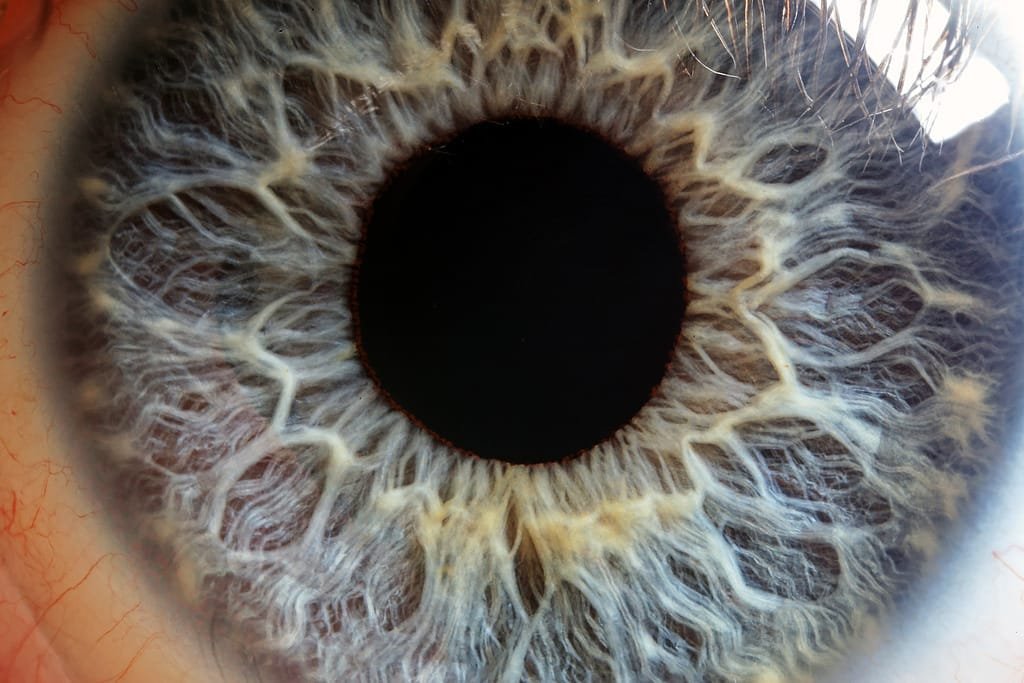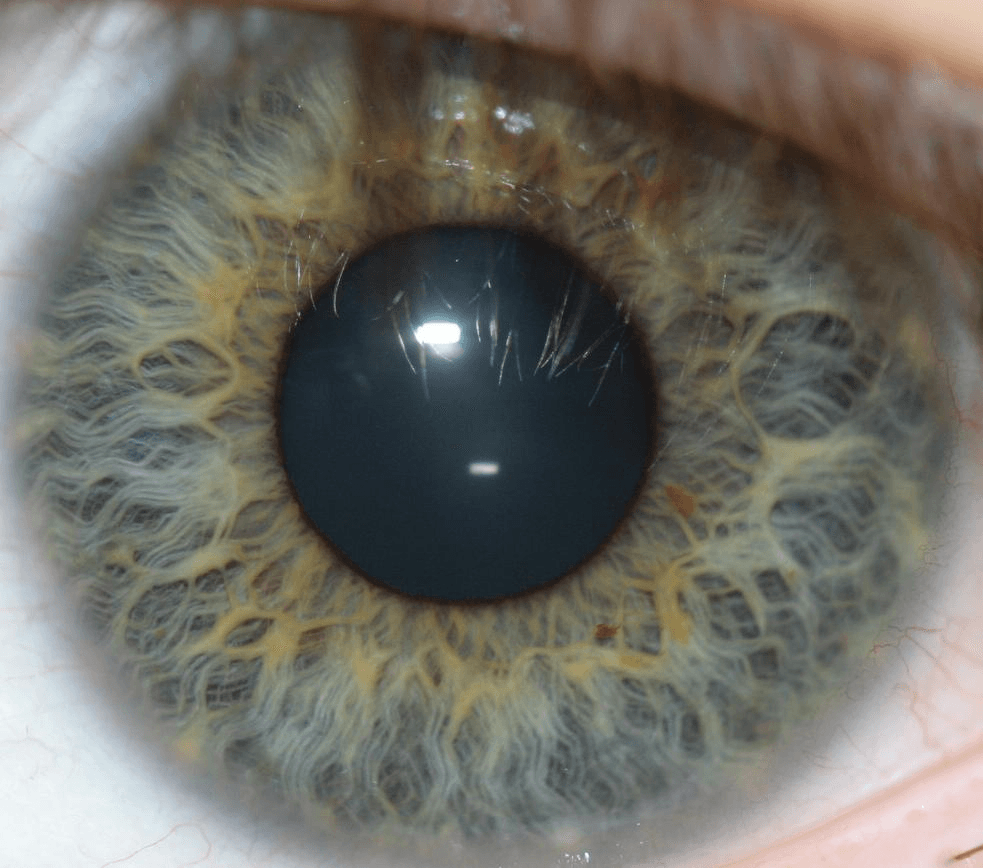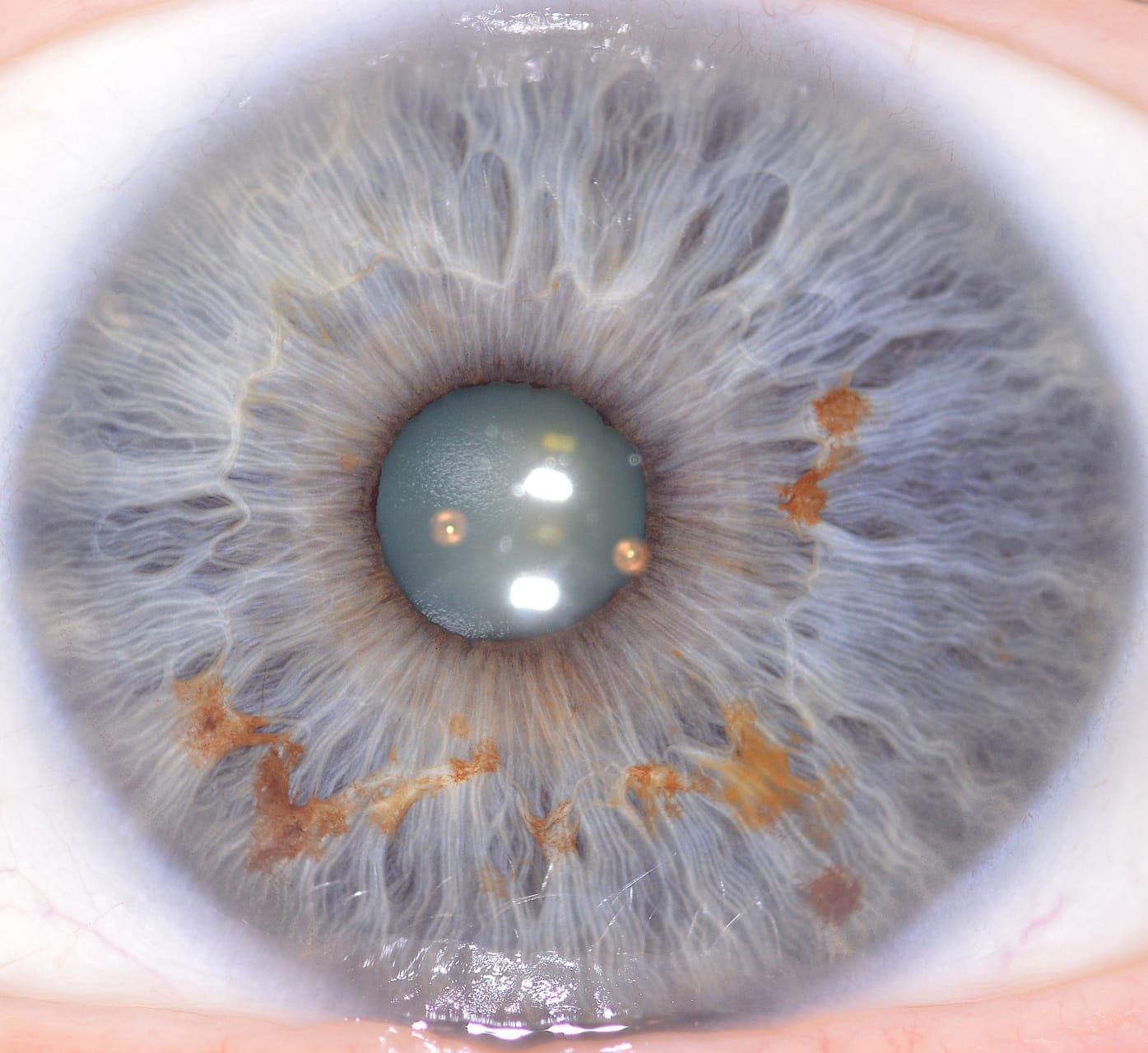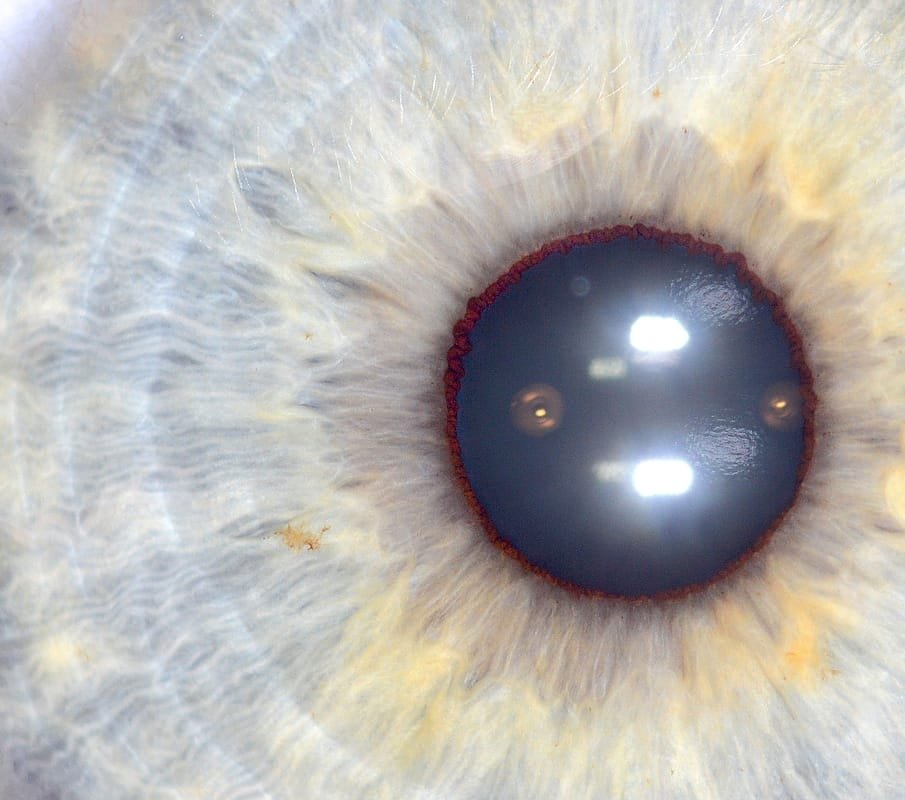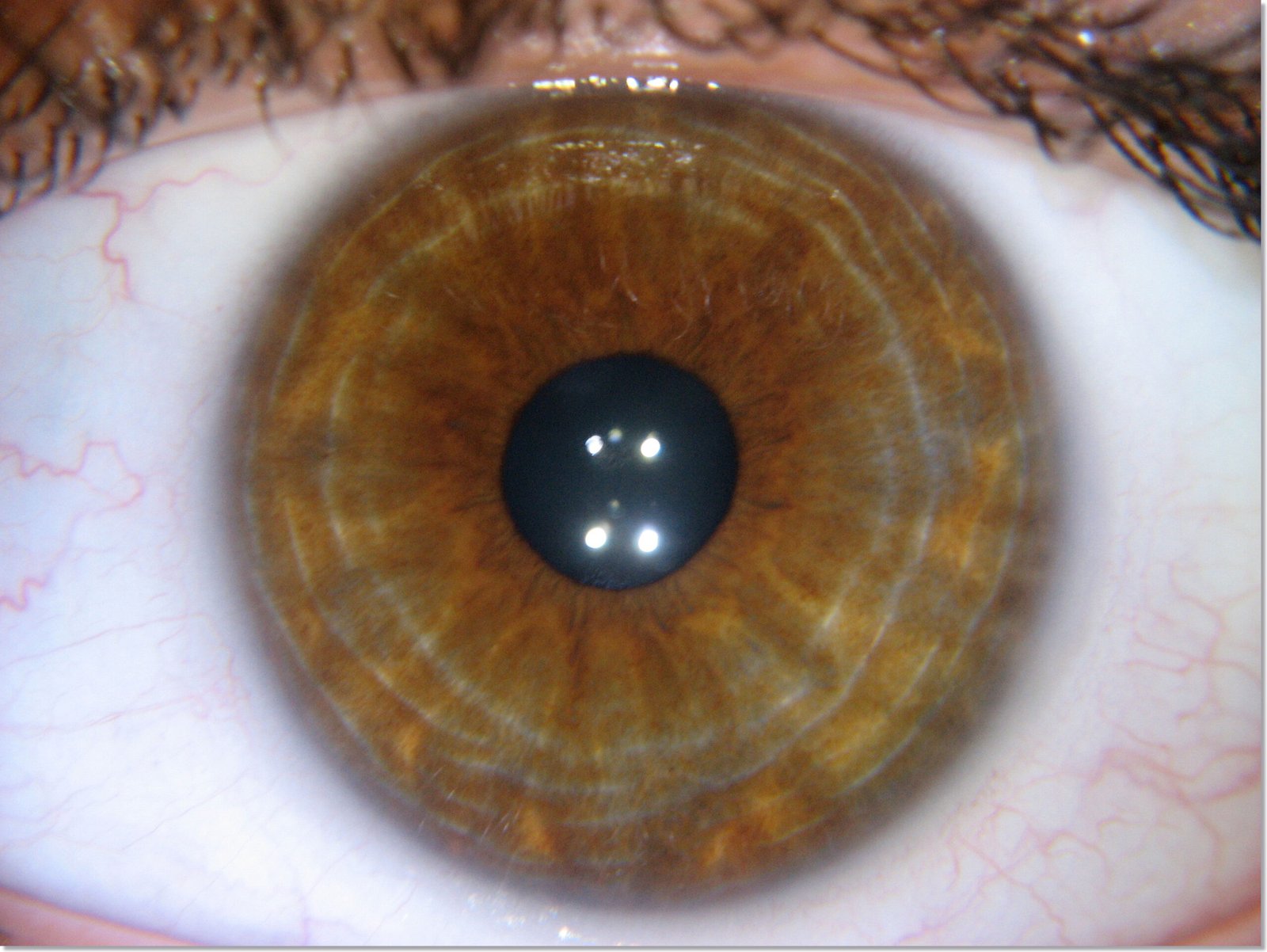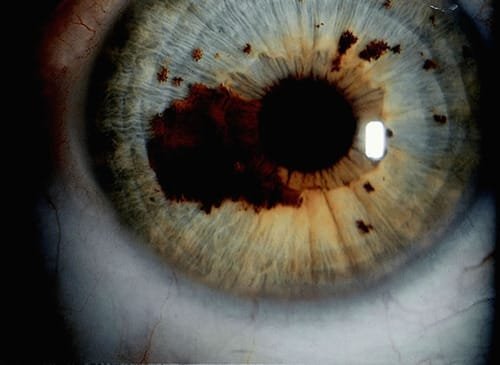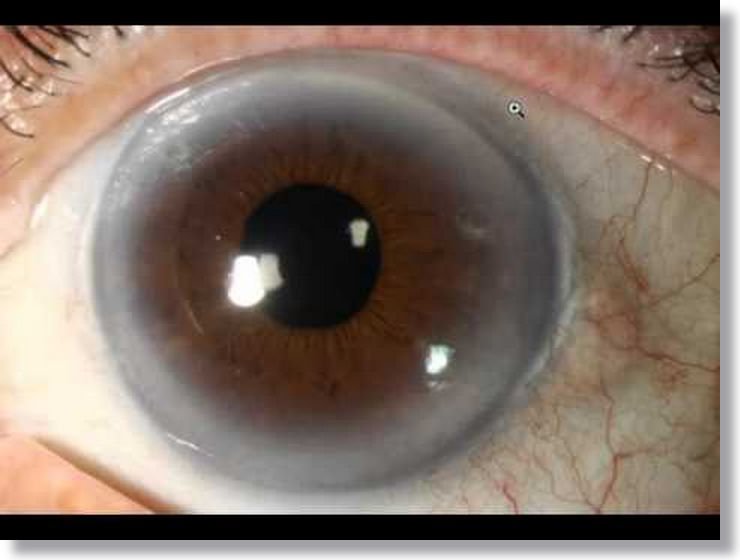Your iris—the colored part of your eye—plays a crucial role in your overall vision health. This remarkable structure not only gives your eyes their distinctive color but also regulates the amount of light entering your eye by controlling pupil size. Understanding proper iris eye care is essential for maintaining optimal vision and preventing potential complications that could affect this delicate structure.In this comprehensive guide, we’ll explore everything you need to know about iris eye care, from understanding its function to recognizing common conditions and implementing preventive measures that can help preserve your vision for years to come.Concerned About Your Eye Health?
Don’t wait until vision problems develop. Proactive eye care is essential for long-term health.
Schedule an Eye Exam Today
The Importance of Iris Health

The intricate structure of a healthy iris regulates light entering the eye
The iris is more than just the colored portion of your eye that determines whether you have blue, brown, green, or hazel eyes. This complex structure contains tiny muscles that control the size of your pupil, regulating how much light enters your eye. When functioning properly, your iris automatically adjusts to changing light conditions—contracting in bright environments and expanding in dim settings.
Beyond its light regulation function, the iris contributes to your overall eye health in several important ways:
- Protects the retina from excessive light exposure that could cause damage
- Contributes to proper depth perception and visual clarity
- Contains unique patterns that are as individual as fingerprints
- Serves as an indicator of certain systemic health conditions
Maintaining iris health is essential not just for preserving your vision but also for protecting the delicate internal structures of your eye. When the iris becomes inflamed or damaged, it can lead to serious vision complications that may be difficult to reverse.
Learn More About Your Iris Health
Discover how specialized eye care can help maintain the health of your iris and protect your vision.
Explore Iris Care Options
Common Iris-Related Conditions
Understanding the conditions that can affect your iris is an important step in recognizing potential problems early. Here are some of the most common iris-related issues that may require professional eye care attention:
Iritis (Anterior Uveitis)
Iritis is an inflammation of the iris and surrounding tissues that can cause significant discomfort and vision problems. This condition often develops suddenly and may be linked to autoimmune disorders, infections, or trauma.
Common Symptoms:
- Eye pain and redness
- Sensitivity to light (photophobia)
- Blurred or decreased vision
- Floating spots in your visual field
- Irregular pupil shape
Warning: Untreated iritis can lead to complications including glaucoma, cataracts, and permanent vision loss. Seek immediate medical attention if you experience these symptoms.
Iris Trauma
Physical injuries to the eye can damage the iris, resulting in tears, detachment, or other structural abnormalities. Common causes include sports injuries, workplace accidents, and penetrating eye trauma.
Signs of Iris Trauma:
- Irregular pupil shape or size
- Visible tears in the iris tissue
- Blood in the anterior chamber (hyphema)
- Decreased visual acuity
- Pain and light sensitivity
Eye trauma requires immediate medical evaluation. Even seemingly minor injuries can cause serious internal damage to the iris and other eye structures.
Aniridia
Aniridia is a rare congenital condition characterized by the partial or complete absence of the iris. This genetic disorder affects approximately 1 in 50,000-100,000 people and is often associated with other eye abnormalities.
Characteristics and Complications:
- Extreme sensitivity to light due to inability to regulate light entry
- Poor visual acuity
- Nystagmus (involuntary eye movements)
- Increased risk of glaucoma and cataracts
- Potential corneal problems
Iris Coloboma
Coloboma is a congenital condition where a portion of the iris is missing, creating a keyhole or notched appearance in the pupil. This occurs when the eye doesn’t form completely during fetal development.
Effects and Management:
- Distinctive keyhole-shaped pupil
- Increased light sensitivity
- Potential vision impairment depending on severity
- May be associated with other eye or systemic abnormalities
- Often managed with tinted contact lenses or glasses
Experiencing Iris-Related Symptoms?
Early detection and treatment are crucial for preventing vision loss from iris conditions.
Consult an Eye Specialist
Daily Iris Eye Care Tips


Proper UV protection is essential for daily iris health maintenance
While you can’t directly care for your iris like you can other parts of your body, there are several proactive measures you can take to protect this delicate structure and maintain overall eye health. Implementing these daily iris eye care practices can significantly reduce your risk of developing iris-related conditions:
UV Protection
Ultraviolet (UV) radiation can damage the delicate structures of your eye, including your iris. Excessive UV exposure has been linked to various eye conditions and may contribute to iris pigment changes.
- Wear sunglasses that block 99-100% of UVA and UVB radiation
- Choose wrap-around styles for maximum protection
- Wear sunglasses even on cloudy days, as UV rays can penetrate cloud cover
- Consider polarized lenses to reduce glare, which can strain your eyes
Nutrition for Eye Health
A balanced diet rich in specific nutrients can help maintain iris health and support overall eye function. Antioxidants are particularly important for protecting eye tissues from oxidative stress.
- Consume foods rich in vitamins A, C, and E (carrots, citrus, nuts)
- Include omega-3 fatty acids from fish or flaxseed
- Eat leafy greens containing lutein and zeaxanthin
- Stay hydrated to maintain proper tear production
Digital Eye Strain Prevention
Extended screen time can contribute to eye strain, which may indirectly affect iris function by causing pupil constriction and dilation patterns that differ from natural viewing conditions.
- Follow the 20-20-20 rule: every 20 minutes, look at something 20 feet away for 20 seconds
- Position screens at arm’s length and slightly below eye level
- Use blue light filtering glasses or screen filters
- Ensure proper lighting to reduce glare and contrast issues
The Blink Connection
Did you know that your blink rate typically decreases by more than 50% when using digital devices? Regular, complete blinking helps maintain the tear film that protects your cornea and indirectly supports iris health by ensuring a stable ocular environment.
Natural Remedies for Iris Health
While serious iris conditions require professional medical treatment, several natural approaches can complement conventional eye care and help maintain iris health. These science-backed methods focus on reducing inflammation, supporting overall eye function, and creating an optimal environment for eye health.

Natural supplements and remedies that support overall eye and iris health
Antioxidant-Rich Diet
Oxidative stress can damage delicate eye tissues, including the iris. Antioxidants help neutralize free radicals that contribute to this damage. Research published in the Journal of Ophthalmology suggests that dietary antioxidants may help reduce the risk of several eye conditions.
- Bilberry extract – Contains anthocyanosides that strengthen blood vessels in the eyes
- Lutein and zeaxanthin – Carotenoids that filter harmful blue light and act as antioxidants
- Omega-3 fatty acids – Reduce inflammation and support overall eye health
- Vitamin C – Supports blood vessels in the eye and may help prevent cataracts
Herbal Compresses
Gentle herbal compresses can help soothe eye strain and reduce inflammation around the eye area, creating a healthier environment for your iris and other eye structures.
- Chamomile tea compress – Has anti-inflammatory properties that can soothe irritated eyes
- Green tea compress – Contains catechins with antioxidant and anti-inflammatory effects
- Cucumber slices – Provide cooling relief and contain antioxidants
- Rose water – Mild astringent properties that can refresh tired eyes
Always use sterile preparation methods for any compress that will come in contact with your eyes. Never apply herbal remedies directly into the eye unless specifically formulated and approved for ocular use.
Hydration and Eye Health
Proper hydration is essential for maintaining the delicate balance of fluids in your eye. Dehydration can affect tear production and quality, which indirectly impacts iris health by altering the ocular environment.
- Aim for 8-10 glasses of water daily
- Limit caffeine and alcohol, which can contribute to dehydration
- Include hydrating foods like cucumbers, watermelon, and celery
- Consider using a humidifier in dry environments to prevent eye dryness
“While natural remedies can support overall eye health, they should complement, not replace, professional medical care for specific iris conditions. Always consult with an eye care specialist before starting any supplement regimen.”
– American Academy of Ophthalmology
Discover Natural Eye Care Solutions
Learn how to incorporate natural remedies into your comprehensive eye care routine.
Explore Natural Remedies
When to See an Eye Care Specialist
While preventive measures and natural remedies can support iris health, certain symptoms warrant immediate professional attention. Recognizing these warning signs can help prevent serious complications and preserve your vision.

Regular professional eye exams are essential for detecting iris issues early
Warning Signs That Require Immediate Attention
- Sudden eye pain – Especially when accompanied by redness, may indicate acute iritis
- Rapid vision changes – Blurring, floaters, or flashes of light
- Extreme light sensitivity – Photophobia that interferes with daily activities
- Visible changes to the iris – Including color changes or irregular pupil shape
- Eye injury – Any trauma to the eye, even if it seems minor
Routine Eye Examination Schedule
Even without symptoms, regular comprehensive eye exams are essential for maintaining iris health and detecting potential issues before they become serious. The American Optometric Association recommends the following examination schedule:
| Age Group | Examination Frequency | Special Considerations |
| Adults (18-60) | Every 2 years | More frequent if you have risk factors like diabetes or family history of eye disease |
| Adults (61+) | Annually | Higher risk for age-related eye conditions |
| Contact lens wearers | Annually | Contact lenses can affect corneal health, which indirectly impacts iris function |
| Those with existing eye conditions | As recommended by specialist | May require specialized testing to monitor iris health |
What to Expect During an Iris Examination
During a comprehensive eye exam, your eye care professional will evaluate your iris health through several specialized techniques:
- Slit lamp examination – Provides a magnified, detailed view of the iris structure
- Pupillary response testing – Evaluates how well your iris controls pupil size
- Gonioscopy – Examines the angle where the iris meets the cornea (important for glaucoma screening)
- Dilated eye exam – Allows for examination of structures behind the iris
Protect Your Vision With Professional Care
Don’t wait until symptoms develop. Regular eye exams are essential for maintaining iris health and preventing vision problems.
Schedule Your Eye Exam Today
Conclusion: Your Iris Eye Care Journey
The iris is not just the beautiful colored part of your eye—it’s a complex structure vital to your vision and overall eye health. By understanding the importance of iris eye care and implementing the preventive strategies outlined in this guide, you can help protect this delicate structure and maintain optimal vision throughout your life.
Remember that iris health is part of a comprehensive approach to eye care that includes:
- Protecting your eyes from UV radiation and environmental hazards
- Maintaining a nutrient-rich diet that supports eye health
- Practicing good digital hygiene to prevent eye strain
- Staying hydrated and considering natural supportive remedies
- Scheduling regular professional eye examinations
- Seeking immediate care for any concerning symptoms
By being proactive about your iris eye care, you’re taking an important step toward preserving your vision and enjoying clear, comfortable sight for years to come. Your eyes are irreplaceable—give them the care and attention they deserve.
Stay Informed About Eye Health
Subscribe to our newsletter for the latest research, tips, and information about iris eye care and overall vision health.
With proper iris eye care, you can enjoy clear, comfortable vision for years to come

